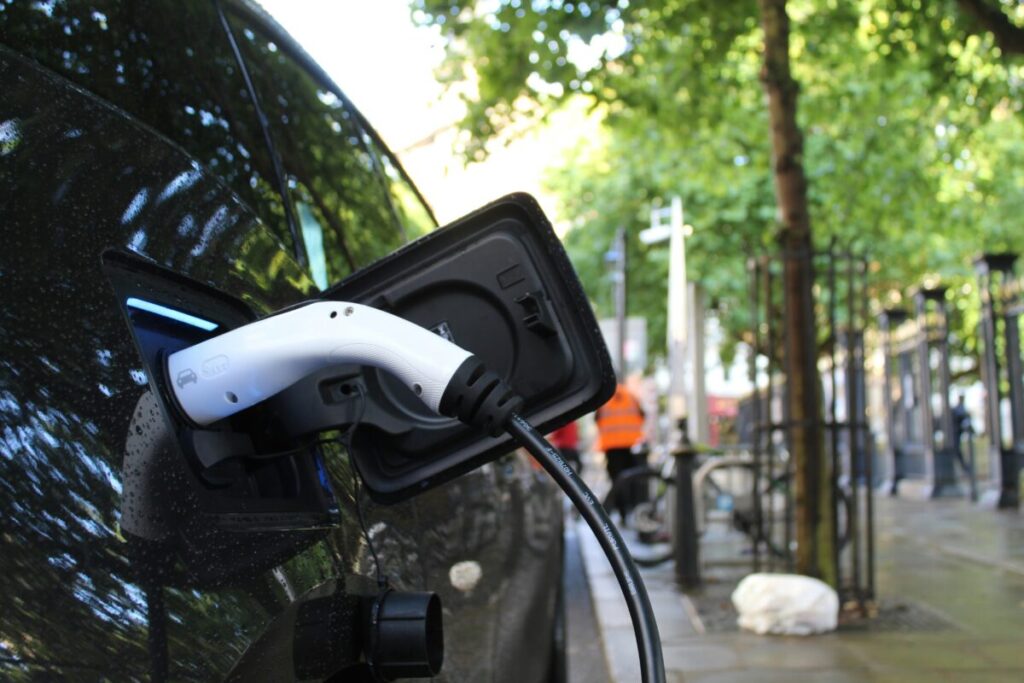New data has shown electric vehicles (EVs) increased their market share in the UK new car market in October, as demand for internal combustion engine (ICE) cars continues to wane.
The latest statistics from the Society of Motor Manufacturers and Traders (SMMT) reveal that battery electric vehicles (BEVs) were the only type of car seeing a rise in uptake. October saw registrations of BEVs grow by 24.5% year-on-year, reaching a 20.7% market share, while petrol and diesel vehicles declined by 14.2% and 20.5%, respectively, while registrations of petrol and diesel vehicles, as well as hybrid and plug-in hybrid cars, dropped by 1.6% and 3.2%, respectively.
October sales of BEVs totalled 29,802, a significant drop from September 2024’s total of 56,387, which was the strongest month for BEV sales so far this year. According to the SMMT, 300,000 new BEVs have hit the road so far this year, making up 18.1% of the UK’s automotive market. While this is undoubtedly positive, it falls short of the 22% market share target for 2024.
The increase in model choice and falling costs of BEV ownership are credited as driving the rising popularity of BEVs. UK new car buyers can now choose from over 125 different BEV models, a range which the SMMT notes has grown by 38% in the past ten months alone. One in five BEV models is now cheaper to purchase than the average petrol or diesel car, and the increase in salary sacrifice plans and other finance packages further lowers the cost for potential BEV owners.
Mike Hawes, SMMT chief executive, said: “Massive manufacturer investment in model choice and market support is helping make the UK the second largest EV market in Europe. EVs already work for many people and businesses, but to shift the entire market at the pace demanded requires significant intervention on incentives, infrastructure and regulation.”
How will the Autumn Budget impact EV uptake?
In the first Labour Party budget in over a decade, chancellor of the exchequer Rachel Reeves announced that while existing incentives for EVs in company car tax will be maintained, the plan to extend vehicle tax to BEVs from April 2025 will go ahead.
However, the government is taking other measures to encourage EV uptake. The full budget document confirmed that the government will invest over £200 million in 2025-2026 to accelerate the rollout of EV chargepoints, while also providing £120 million over this time period to support the purchase of new electric vans and the manufacture of wheelchair-accessible EVs. Additionally, £2 billion in investment funding will be given to the UK’s automotive manufacturing sector over the next two years, a move which Reeves says is intended to boost growth in the EV sector.
However, some experts question if this amount is sufficient, including the head of transport at the Energy & Climate Intelligence Unit (ECIU), Colin Walker. Following the budget announcement, Walker commented that the government “clearly recognises” the importance of the EV manufacturing sector but added: “Given the vast levels of support and investment that other countries are providing their automotive industries, the question has to be, is this £2 billion enough?”
While the government and the wider automotive industry are primarily directing their attention towards the manufacture and sale of new BEVs, it is worth noting that the second-hand BEV market is booming. SMMT figures show that in Q2 2024, sales of used BEVs rose by 52.6% to reach a record market share of 2.4%, with sales of used plug-in hybrids and hybrids rising by 25.2% and 43.6%, respectively. This continues the trend seen in the first quarter of this year, during which used BEV sales rose by 71%.






